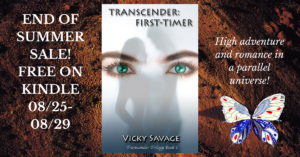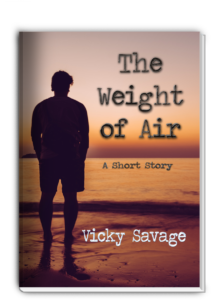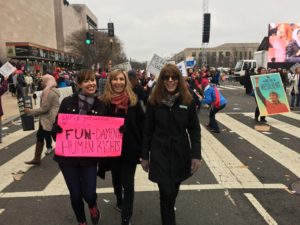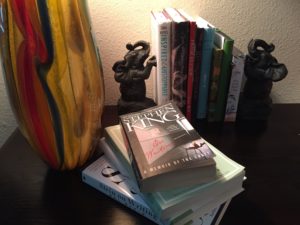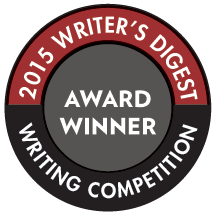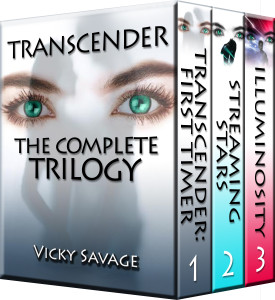Hi Everyone –
If you haven’t yet read Transcender, now’s your chance to do it for free! From August 25, 2017 to August 29,2017, Transcender: First-Timer, Book 1 of the Transcender Trilogy will be free for Kindle. Pick up your copy and tell your friends!
BOOK DESCRIPTION:
Missing her school prom isn’t the worst thing that’s ever happened to Jaden Beckett. Her mom died suddenly last year, and her dad has all but checked out emotionally. But after a freak electrical storm catapults her into a parallel version of earth where nations are housed beneath gigantic domes, she finds herself facing a whole new world of challenges.
Kidnapped by mysterious swordsmen on horseback, Jaden escapes with the help of an agent from the powerful Inter-Universal Guidance Agency—the self-appointed destiny police. Agent Ralston vows to return her to her quiet Connecticut life as soon as he is able, but in the meantime, she’s forced to assume the identity of her doppelganger in Domerica, who just happens to be a member of the ruling family. Though a reluctant imposter at first, Jaden soon discovers some wonderful news—her mom is alive in Domerica, and her new lifestyle is luxurious beyond belief. Then, when she unexpectedly falls for the mysterious outlaw, Ryder Blackthorn, she realizes she is hopelessly torn between worlds.
To make matters worse, as the time draws near for Jaden’s journey home, she discovers Agent Ralston has concealed a vitally important secret from her—one that will change the course of her entire future. What results is Jaden’s extraordinary struggle for control of her own destiny and the freedom to pursue the tempestuous love affair that transcends space and time.
Transcender: First-Timer: Amazon
I spent last weekend in Washington DC in order to attend the Women’s March on Washington. My sister who lives in Park City, Utah, met me there and we stayed with my daughter and her fiancé who live in DC only blocks from the march’s gathering point. The Saturday event was unquestionably one of the most profoundly moving experiences of my life. The speakers weren’t focused solely on “women’s issues.” Many causes were represented, and people from all walks of life came together to show the world how much we care about the direction in which our country is moving. I was heartened and uplifted by the peaceful joining of our voices for freedom, justice and equality.
On Sunday, when I boarded my flight back to Florida, I remained inspired and uplifted by my experience of the previous day. Unfortunately, the weather didn’t match my sunny mood. We were told almost immediately we’d be waiting on the tarmac until the pilot received word that the storms around the Tampa airport had subsided. Among the last people to board our flight was an attractive young family. The mother was black, the father white, and the two small children seemed a perfect combination of both. The seating assignments were broken up so that the father and the youngest son were sitting in the row in front of me, the mother was seated by the window in the row behind me, and the older boy, who appeared to be about eight, took the window seat next to mine.
The wait on the ground seemed interminable, and I noticed that the boy had no book, no bag, no electronic device, nothing to keep him occupied. Nevertheless he was quiet and well behaved. I busied myself by reading and reflecting on the weekend.
After we were cleared for takeoff and our plane became airborne, the pilot announced it was too turbulent for the flight attendants to perform their usual beverage service, and the seatbelt sign would remain on throughout the flight. I began to feel terribly sorry for the young man next to me, and rummaged through my bag looking for something that might interest him. At a loss, I pulled out my cell phone. I didn’t want to seem overly forward, so I began to play a game on the phone. He watched over my shoulder for a few minutes. Then I asked, “Do you know how to play this game?” He shook his head. “It’s pretty easy,” I said, “and it shows you moves if you can’t find one. Do you want to try?”
“No thank you,” he told me. Then he peeked his head around the seat and whispered something to his mom. When he turned back he was beaming. “She says it’s okay,” he announced, so I gave him my phone and explained some of the game’s basics to him.
For the next two and a half hours the young man happily mastered every entertainment app on my phone. I was truly impressed with his abilities and his sweet disposition. His joy at reaching new game levels was contagious.
Once we landed in Tampa, he handed the phone back to me and thanked me profusely. As we taxied to our gate I asked if he lived in Florida, and he nodded. “We were in Washington for the Inauguration,” said, and proudly pulled his red “Make America Great Again” hat from his jacket pocket. This came as a surprise to me considering the racial make-up of his family, the fact that his parents had taught him excellent manners, and my observation that they policed his free time activities—not things I considered attributes of the normal Trump supporter.
“I have to ask you something,” he said, “are you a Trumper or a Hillary Clinton supporter?”
“I’m a Hillary Clinton supporter,” I told him, “but that doesn’t mean we can’t be friends, right?”
“Right!” he said, and we shook hands.
As we were deplaning, the boy’s father expressed his appreciation to me and asked if his son had thanked me also. I assured him he did. The boy said, “Dad, she’s a Hillary Clinton supporter, but she said we can still be friends.”
The father laughed. “That’s right we’re all on the same team, son. We want the country to be safe, secure, and prosperous. We just disagree on how to go about achieving that, but we all still hope for the best.”
I was impressed with the graciousness, intelligence, and embodiment of diversity of this little family, which left me even more bewildered as to why the parents would embrace our new president so heartily. The last election had shaken me to my core. It wasn’t only the caliber of man who was elected; it’s what the people who supported him had to overcome in order to cast their vote for him. The death of civility in the political process was regrettable, but dangerous behaviors like joking about sexual assault, mocking the disabled, and spreading false news were absolutely disqualifying in my view. The basic tenets of human decency appeared to be no longer valued by large swaths of the American people, and I longed to know why.
Within my struggle to understand why this seemingly intelligent couple with strong family values would vote for such a man, there came a glimmer of hope. My belief is that many of those who voted for Trump did so out of a overriding desire for positive change and in spite of his abhorrent behavior. While I still consider it a calamitous decision to ignore what a person does in favor of what he says he’ll do, it’s my deepest hope that if and when the promised positive change does not materialize, those Americans who still cherish the values of honesty, integrity, fairness will hold this president directly accountable and vote their conscience in our next election.
In the meantime, I continue to desire only the best for our country, which is why I will also continue to raise my voice in an effort to protect our inalienable rights to truth, freedom of expression, justice, and equality. That’s #whyimarch.
Christmastime always makes me nostalgic. My most memorable Christmases are those I spent as a kid. The holiday season has always seemed magical to me and it was even more so when I was a child. There were many years when I received a memorable gift that had a lasting impact on my life – my first Barbie doll, my first record player (complete with Beatles records), my first transistor radio (with ear phones so my parents didn’t know I was listening all night), and the list goes on.
As an adult, it takes a little more than a Barbie doll to rock my world, but I’m excited to report that I’m finally getting a new car this year. It was difficult to think about parting with my reliable old Mercedes, but when someone pointed out to me that I have readers younger than my car, I decided it was time! Also, our family is gathering in our new home this year, and we all seem to be embarking on exciting new phases and of life, for which I am thankful.
Anyway, the holiday season is such a hopeful time of positive new beginnings, and even though I’m not a child anymore, I feel like one at this time of year. This quote from Agatha Christie seems to sum it all up, “Suddenly you find … that a whole new life has opened before you … as if a fresh sap of ideas and thoughts was rising in you.” I wish that feeling for you this holiday season and throughout the coming New Year!
As a small Christmas gift to my readers, I’ve placed the Transcender Trilogy Complete Box Set on sale from December 23 through December 26. Only $1.99 for all three Kindle books. Makes a nice gift. Tell all your friends!
